Unlock the secrets to glowing skin with 10 essential oils! Dive into this Desi guide for radiant beauty
In the hustle-bustle of our daily lives, skin care often takes a backseat. But let's face it, who
doesn't want that healthy, radiant glow? While the market is flooded with fancy creams and serums, sometimes the best solutions are found in nature itself.
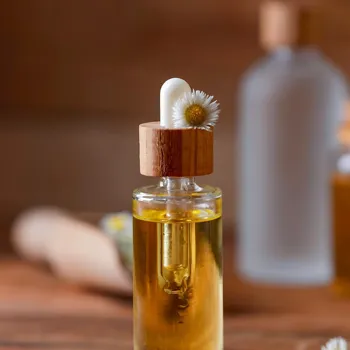
Enter essential oils – concentrated plant extracts packed with potent properties that can do wonders for your skin. But with so many options available, it can be a bit overwhelming to know where to start.
So, we've curated a list of 10 essential oils, readily available in India, and their amazing benefits. Get ready to unlock the secrets to naturally beautiful skin!
Tea Tree Oil: The Acne Avenger
If you're battling pimples and acne, tea tree oil is your new best friend. This oil, known for its strong antiseptic and anti-inflammatory properties, helps to fight the bacteria that cause acne. It can also reduce redness and swelling associated with breakouts.
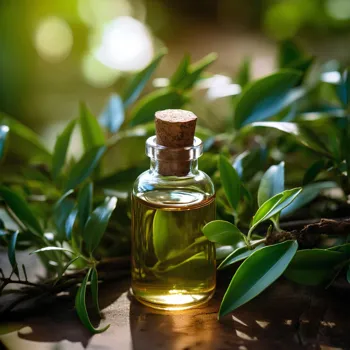
Just remember to dilute it with a carrier oil like coconut or jojoba oil before applying it directly to your skin, as it can be quite potent. A little dab on affected areas goes a long way in keeping those pesky pimples at bay. Many swear by it for its spot treatment abilities.
Lavender Oil: The Soothing Savior
Lavender oil isn't just for a good night's sleep; it's also fantastic for your skin! It has calming and anti-inflammatory properties that can soothe irritated skin, reduce redness, and even help heal minor cuts and burns.
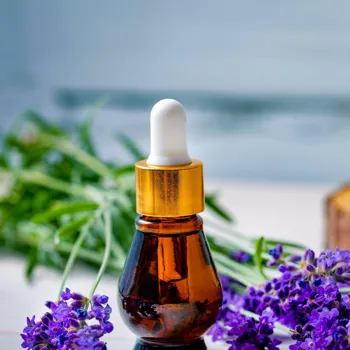
Its gentle nature makes it suitable for most skin types, including sensitive skin. Add a few drops to your moisturizer or bathwater for a relaxing and skin-loving experience. Its aromatic properties also helps in de-stressing, positively impacting overall skin health.
Its calming fragrance contributes to relaxation.
Rosehip Oil: The Radiance Revealer
Rosehip oil is a powerhouse of vitamins, antioxidants, and essential fatty acids. This makes it a champion for improving skin tone and texture. It's known to reduce the appearance of scars, fine lines, and wrinkles, promoting a youthful and radiant complexion.
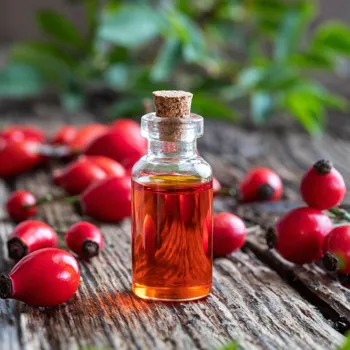
Rosehip oil is also deeply moisturizing, making it ideal for dry and mature skin. Apply it as a serum at night to wake up with a naturally glowing face. The presence of Vitamin C helps in brightening the complexion.
Jojoba Oil: The Balancing Act
Jojoba oil is unique because its structure is very similar to the skin's natural sebum. This means it's easily absorbed and won't clog pores. It's excellent for balancing oil production, making it suitable for both oily and dry skin types.
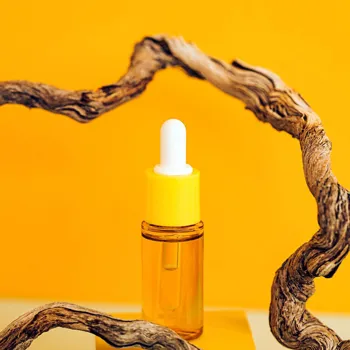
Jojoba oil can also help to moisturize dry skin, soothe irritation, and even reduce acne. Use it as a makeup remover, moisturizer, or carrier oil for other essential oils. The molecular structure allows deep skin penetration.
Sandalwood Oil: The Timeless Treasure
Sandalwood oil has been used in Indian skincare for centuries, and for good reason. It has antiseptic, anti-inflammatory, and astringent properties that can help to soothe acne, reduce inflammation, and tighten pores.
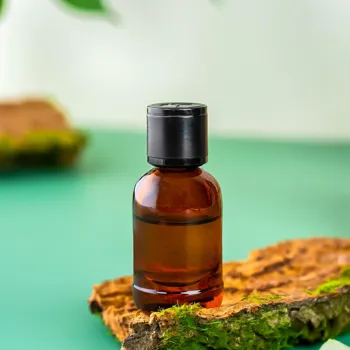
It's also known for its calming and grounding aroma, making it a popular ingredient in aromatherapy. Add a few drops to your face pack or massage oil for a luxurious and skin-nourishing experience. The use of Sandalwood dates back to ancient times.
Lemon Oil: The Brightening Booster
Lemon oil is a natural astringent and can help to brighten the skin, reduce dark spots, and even out skin tone. Its antibacterial properties can also help to fight acne. However, it's crucial to use lemon oil with caution, as it can be photosensitive.
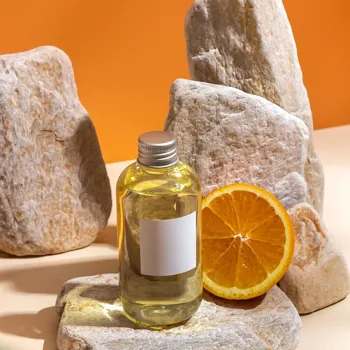
Always dilute it with a carrier oil and avoid direct sunlight after application. Use it in your nighttime skincare routine for a brighter and more even complexion. Perform a patch test to avoid any allergic reactions.
Geranium Oil: The Skin's Best Friend
Geranium oil is an all-rounder that can benefit all skin types. It helps to balance oil production, reduce inflammation, and promote skin cell regeneration. It can also help to improve skin elasticity, reduce wrinkles, and fade scars.
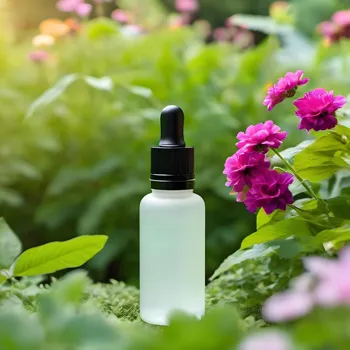
Add a few drops to your moisturizer or facial toner for a balanced and healthy complexion. It is known for its ability to even skin tone and complexion. Due to its versatile benefits, it is also used in hair care.
Frankincense Oil: The Rejuvenating Remedy
Frankincense oil is highly prized for its rejuvenating and anti-aging properties. It can help to reduce the appearance of wrinkles, fine lines, and age spots. It also promotes skin cell regeneration and improves skin elasticity.
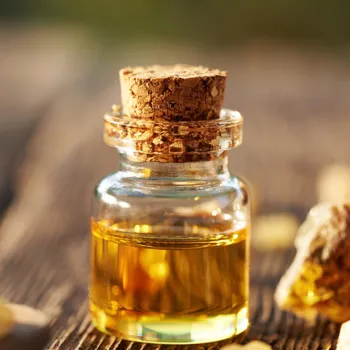
Add a few drops to your serum or night cream for a youthful and radiant complexion. Its rich history and beneficial properties make it a desired ingredient. Its aroma is also known for its calming properties.
Rosemary Oil: The Circulation Champion
Rosemary oil is known for its stimulating properties, which can help to improve circulation and promote healthy skin. It can also help to reduce cellulite, tighten pores, and improve skin tone. Add a few drops to your massage oil or body lotion for a toned and revitalized skin.
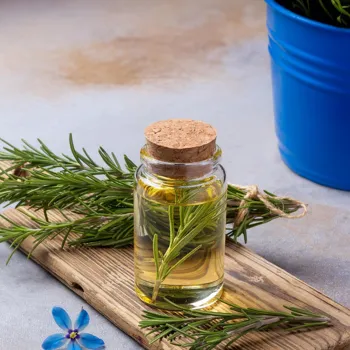
It may aid in reducing dark spots. People also acknowledge rosemary for its hair growth benifits.
Carrot Seed Oil: The Sunscreen Supplement
Carrot seed oil is rich in antioxidants and carotenoids, which can help to protect the skin from sun damage and premature aging. It can also help to improve skin tone and texture, reduce wrinkles, and fade scars. Add a few drops to your sunscreen or moisturizer for added protection and nourishment.
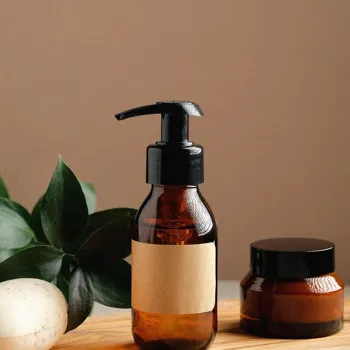
Consider this as a supplement to sunscreen rather than a replacement. Always check the concentration before applying it.
Important Considerations:
Always dilute: Essential oils are highly concentrated and can cause skin irritation if applied directly.
Always dilute them with a carrier oil like coconut, jojoba, almond, or grapeseed oil.
Patch test: Before using any essential oil on your face, do a patch test on a small area of skin to check for any allergic reactions.
Quality matters: Choose high-quality, pure essential oils from reputable brands.
Sun sensitivity: Some essential oils, like lemon oil, can make your skin more sensitive to the sun. Avoid direct sunlight after application or use them in your nighttime skincare routine.
Listen to your skin: Pay attention to how your skin reacts to different essential oils and adjust your routine accordingly.
With a little knowledge and caution, essential oils can be a fantastic addition to your skincare routine.
So, embrace the power of nature and unlock your skin's natural radiance!
Decoding Essential Oils: A Beginner's Handbook
Stepping into the aromatic world of essential oils can feel like entering a different realm altogether.
These concentrated plant extracts have been used for their therapeutic and cosmetic benefits for centuries. But before you dive headfirst into this natural skincare trend, it's crucial to understand the basics to ensure safety and effectiveness.
Essential oils are derived through various extraction methods, primarily steam distillation or cold pressing. These processes capture the plant's essence, resulting in oils that are far more potent than their original botanical sources.
This potency is why dilution with a carrier oil, such as jojoba, coconut, or almond oil, is absolutely essential. Applying undiluted essential oils directly to the skin can lead to irritation, redness, or even allergic reactions. Always remember: a little goes a long way.
Identifying the Right Essential Oil for Your Skin Needs
Different essential oils offer various benefits, so it's essential to identify the right one for your specific skincare concerns. Consider whether you're dealing with acne, dryness, inflammation, or aging.
For instance, if acne is your primary concern, tea tree oil's antibacterial properties may be your best bet. If your skin is dry and needs hydration, rosehip or jojoba oil might be more suitable. For those looking to combat signs of aging, frankincense and carrot seed oil are popular choices.
Remember that even natural ingredients can cause allergic reactions. Always start with a patch test. Apply a small amount of the diluted essential oil to a discreet area of your skin, such as the inside of your wrist, and wait 24 hours to see if any irritation occurs.
This simple step can save you from potential discomfort and unwanted reactions.
Incorporating Essential Oils into Your Daily Routine
Once you've chosen your essential oils and performed a patch test, it's time to incorporate them into your daily skincare routine.
You can add a few drops to your existing moisturizer, serum, or cleanser or create your own DIY skincare recipes. For example, you can make a simple face toner by mixing a few drops of lavender oil with distilled water.
Or, you can create a soothing face mask by combining a few drops of sandalwood oil with multani mitti (Fuller's earth) and rose water. When using essential oils in your routine, remember to be patient and consistent. It may take several weeks or months to see noticeable results.
Also, keep in mind that essential oils are not a quick fix for all skincare issues. They work best as part of a holistic approach that includes a healthy diet, regular exercise, and adequate sleep.
Understanding Carrier Oils: The Unsung Heroes
While essential oils steal the spotlight, carrier oils play a crucial role in skincare. They not only dilute the essential oils but also provide their own set of nourishing benefits.
Different carrier oils have different properties, so choosing the right one is essential. Coconut oil is a popular choice for its moisturizing and antibacterial properties. Jojoba oil mimics the skin's natural sebum, making it suitable for all skin types.
Almond oil is rich in vitamin E and fatty acids, which can help nourish and protect the skin. Grapeseed oil is lightweight and easily absorbed, making it ideal for oily skin. When choosing a carrier oil, Opt for cold-pressed, unrefined oils. These oils retain more of their natural nutrients.
Essential Oils for Specific Skin Concerns
Breakouts: For acne-prone skin, tea tree oil and lemon oil are excellent choices due to their antibacterial properties. Dilute with Jojoba oil before applying on face.
Dryness: Rosehip oil and Jojoba oil will help increase moisture levels.
Aging Skin: Frankincense oil and Carrot Seed oil are great for preventing wrinkles.
Marks and Scarring: Regular use of rosehip oil can help make scars lighter.
* Uneven Skin Tone: Lemon oil is useful for people with pigmentation.
Safety Precautions and Contraindications
It's crucial to remember that essential oils are potent and should be used with caution. If you are pregnant, breastfeeding, or have any underlying health conditions, consult with a healthcare professional before using essential oils.
Some essential oils can interact with medications. Be mindful of potential photosensitivity, particularly with citrus oils like lemon oil. Always apply sunscreen after using these oils, especially when going outdoors.
Store essential oils in a cool, dark place away from direct sunlight to prevent them from degrading. With responsible usage, you can harness the natural benefits of essential oils to achieve radiant and healthy skin.













